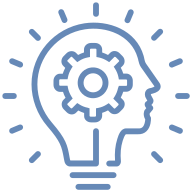In the dynamic world of business, efficiency and productivity are key. Human Resources Management Software (HRMS) is a powerful tool that can revolutionize the way your company operates. This blog post will delve into the intricacies of HRMS, exploring its benefits, features, and how it can transform your HR operations.
Understanding the Basics of HRMS
Human Resources Management Software, often abbreviated as HRMS, is a comprehensive solution that integrates various HR functions into one platform. It streamlines tasks such as recruitment, payroll, benefits administration, and performance management. HRMS is a game-changer for businesses, offering a centralized system that improves efficiency and productivity.
An HRMS system is not just a tool; it's a strategic asset. It automates routine tasks, freeing up HR professionals to focus on strategic initiatives. The software also provides valuable insights through data analytics, enabling informed decision-making.
HRMS solutions come in different shapes and sizes, catering to businesses of all types and sizes. Whether you run a small startup or a multinational corporation, there's an HRMS out there that fits your needs. The key is to understand your business requirements and choose a solution that aligns with them.
The Power of Automation in HRMS
Automation is at the heart of HRMS. It eliminates manual processes, reduces errors, and saves time. From applicant tracking in recruitment to payroll processing, automation simplifies complex HR tasks.
Consider the recruitment process, for example. An HRMS can automate job postings, applicant tracking, and interview scheduling. It can even rank candidates based on predefined criteria, making the selection process easier.
Payroll is another area where automation shines. HRMS can calculate salaries, deductions, and taxes with precision, ensuring employees are paid correctly and on time. It can also generate payslips and tax forms, reducing paperwork and improving compliance.
Data Analytics and Decision Making with HRMS
Data is a valuable resource in today's business landscape. HRMS harnesses this resource, providing analytics that drive strategic decision-making.
With HRMS, you can track key metrics such as employee turnover, absenteeism, and performance. You can also analyze trends and patterns, helping you identify areas for improvement.
Moreover, HRMS can generate reports in real-time, providing a snapshot of your HR operations at any given moment. This real-time visibility enables proactive management, allowing you to address issues before they escalate.
Enhancing Employee Experience with HRMS
HRMS is not just about streamlining HR operations; it's also about enhancing the employee experience. The software provides self-service portals where employees can access their information, submit requests, and communicate with HR.
These portals empower employees, giving them control over their data. They also improve communication and transparency, fostering a positive work environment.
Furthermore, HRMS can facilitate performance management, providing tools for feedback, goal setting, and development planning. This fosters a culture of continuous learning and improvement, boosting employee engagement and retention.
The Future of HRMS
The future of HRMS is exciting, with advancements in technology paving the way for innovative features. Artificial intelligence (AI) and machine learning are set to revolutionize HRMS, enabling predictive analytics and intelligent automation.
Imagine an HRMS that can predict employee turnover, helping you retain top talent. Or a system that can recommend learning and development opportunities based on an employee's performance and career goals.
The possibilities are endless, and the future is bright. HRMS is not just a trend; it's the future of human resources management.
Choosing the Right HRMS for Your Business
Choosing the right HRMS for your business is crucial. It's not a one-size-fits-all solution; what works for one company may not work for another.
Start by assessing your business needs. What HR functions do you want to automate? What data do you need to track? What features are essential for your operations?
Once you have a clear understanding of your needs, you can start evaluating different HRMS solutions. Look for a system that aligns with your needs, offers robust support, and fits within your budget.
Remember, an HRMS is an investment. It may require a significant upfront cost, but the benefits it brings in terms of efficiency, productivity, and strategic decision-making are well worth it.
Embracing the Power of HRMS
Human Resources Management Software is a transformative tool that can streamline your HR operations, enhance the employee experience, and drive strategic decision-making. It's an investment that pays off in the long run, offering a competitive edge in the dynamic world of business. Embrace the power of HRMS and unleash your company's full potential.

